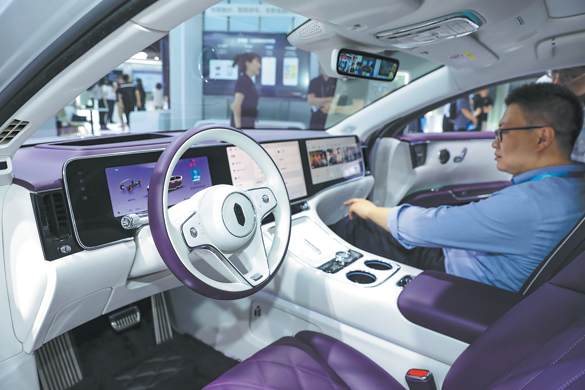Nixon's historic visit shows value of unity, say experts

Richard Nixon's historic trip to China 50 years ago is a good example of how countries with major differences can and should work together, experts say.
Nixon became the first US president to visit the People's Republic of China since its founding in 1949, ending more than 20 years of hostility and almost no contact between the two countries. He called it as "the week that changed the world".
Erik Solheim, former United Nations under-secretary-general and former executive director of the UN Environment Programme, said the main lesson from the diplomacy 50 years ago is that countries should focus on areas in which they can work together instead of being obsessed with single differences.
"Let's focus on the big picture and what we can achieve together," said Solheim, a Norwegian politician. This kind of spirit is needed now to tackle major challenges, from climate change to trade and world peace. "They all need cooperation," he said.
Ding Chun, director of the Center for European Studies at Fudan University in Shanghai, said Nixon made a positive and correct step forward by detecting the trend of history, referring to the US policy of engagement with China, a policy that has benefited both countries and the world.
"But the US government today is going against the global trend," Ding said, citing the US' increasingly confrontational policy on China, such as its incessant demonization and its move toward a so-called economic decoupling.
Donald Trump was considered to be the first US president to embark on reversing decades of US policy on China since Nixon. His successor in the White House, Joe Biden, has largely continued the policy.
Ding believes the main reason is that the US now views a fast-rising China as a major rival and the US will not allow any rival to US primacy. While the EU also finds it challenging sometimes to adapt to a fast-growing China, it will not blindly follow the US.
Shada Islam, a longtime commentator on EU-Asia relations and the editor of the Brussels-based EUobserver magazine, echoes this view.
Europe and the US are reinvesting in the trans-Atlantic alliance, including US-EU consultation on approaches toward China and the establishment of a Trade and Technology Council aimed at setting standards for the sector, she said.
"Such information-exchange and regular trans-Atlantic visits will continue, but the EU is unlikely to align with all elements of the US agenda on China and will keep trying to craft its own 'third way' autonomous track for relations with Beijing, which reflect its own economic and geopolitical interests."
Cheng Li, director of the John L. Thornton China Center at the Brookings Institution, said Nixon's visit helped end the Cold War and was an incredible advancement in bilateral relations between China and the US.
Europe has played a positive role, as seen with the warming in relations between China and several European countries, in particular France under then president Charles de Gaulle, who carried out an independent foreign policy.
China and France established diplomatic ties on Jan 27, 1964, eight years before Nixon's historic trip.
Li said Europe again has a role to play in influencing US strategic thinking since partisan politics in the US means it is nearly impossible for the Biden administration to push forward China-US relations.
"If China can effectively improve relations with the EU and find its own strategic interests, it will create a driving force for China-US relations," he said, adding that should include China's relations with countries in East Asia and Southeast Asia.
Today's Top News
- Washington should realize its interference in Taiwan question is a recipe it won't want to eat: China Daily editorial
- Responsible role in mediating regional conflict: China Daily editorial
- US arms sale only a 'bomb' to Taiwan
- China-Cambodia-Thailand foreign ministers' meeting reaches three-point consensus
- Drills demonstrate China's resolve to defend sovereignty against external interference
- Trump says 'a lot closer' to Ukraine peace deal






























